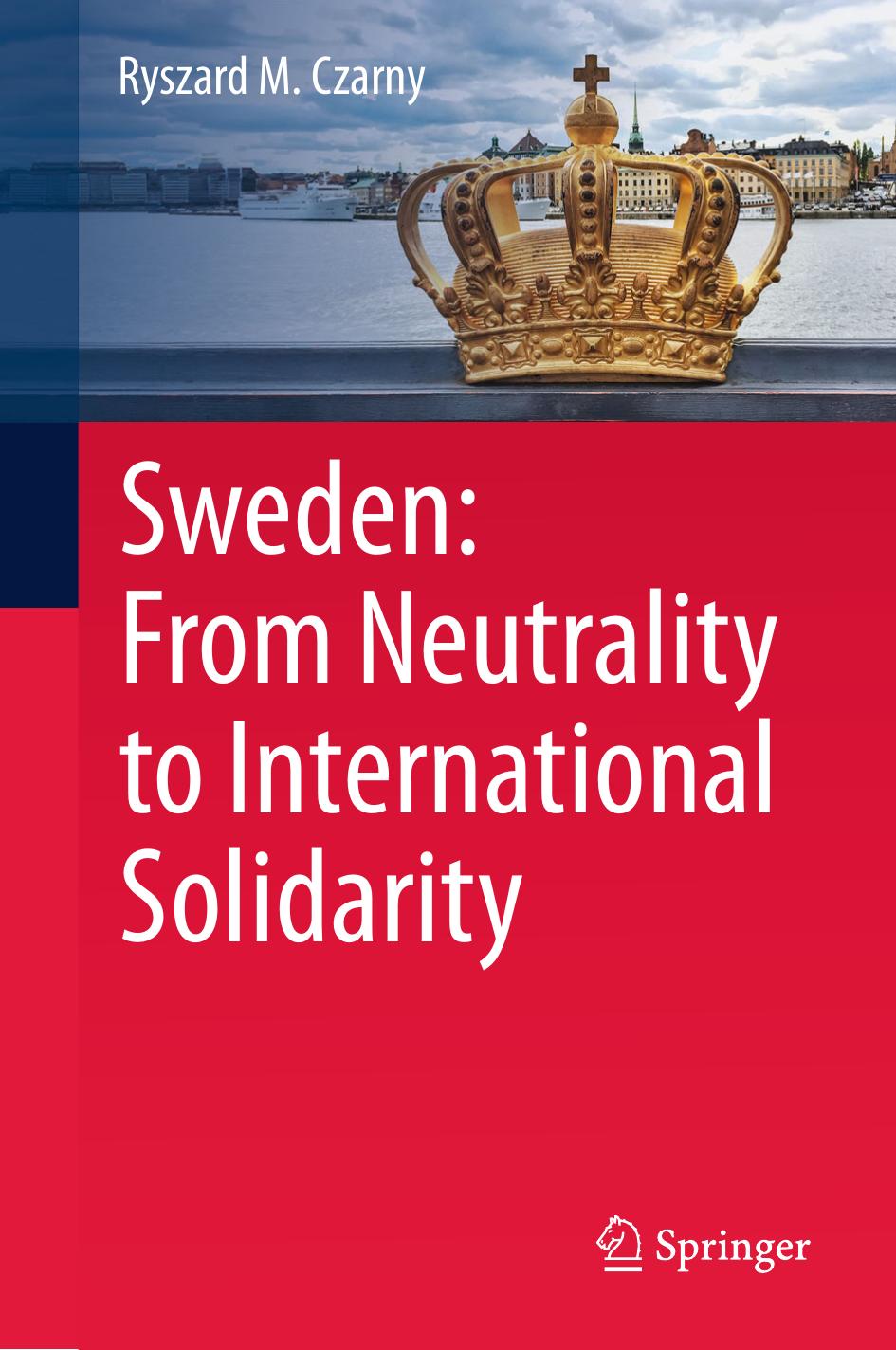Sweden: From Neutrality to International Solidarity by Ryszard M. Czarny

Author:Ryszard M. Czarny
Language: eng
Format: epub, pdf
Publisher: Springer International Publishing, Cham
12.3.1 The White Paper of 2004
In September, 2004, the Swedish government adopted an important document on security policy known as the White Paper (Wedin 2008, p. 41). It was one of the first bills adopted since the September 11, 2001 attacks which comprehensively addressed the global challenges of the 21st century. The paper characterized threats to the modern world as unpredictable and “invisible” and stated that the only rational response to them was to strengthen international security cooperation. The policy formulated in such a way stems from growing interdependence between States which could potentially expose vulnerability of international community (Eriksson 2006, p. 126). Hence the European Union here comes to the fore. The White Paper links Swedish security and defense with the EU, stating that threats against the security of the EU are also threats against Sweden and vice versa (Wedin 2008, p. 41). That is why the Common Security and Defence Policy of the Union (CSDP) is considered to be crucial for Swedish security versa (Wedin 2008, p. 41). It should be borne in mind that Sweden’s priority within the CSDP has traditionally been crisis management (Eriksson 2006, p. 126) rather than a unified territorial defense system, institutionally at least, or a legally binding cooperation in this respect. Nevertheless, the 2004 White Paper addressed also the European Union territorial defense, although not within the context of the CSDP but rather as informal solidarity among EU member states. It should be emphasized that the policy of non-participation in military alliances was upheld in the document. The European Union was regarded as political alliance with solidary ingrained among its members. Therefore, in the White Paper of 2004 we read that “It is difficult to imagine Sweden staying neutral in the case of an armed attack on another EU Member State” (Eriksson 2006, p. 126). This approach represents a major innovation in the existing security policy of Sweden given that it was originally developed by the Social Democratic government. It was the very first time that the official government document unequivocally stated that Sweden would not remain neutral in the event of an armed conflict within the territory of the EU (earlier it was only suggested in an indirect manner). Let us recall that as recently as the 1990s, Sweden’s official security policy doctrine proclaimed non-alignment with military alliances to remain neutral in the event of a war in its immediate vicinity. Thus, we can see that the issue of mutual guarantees for security between EU Member States was introduced into the Swedish security doctrine outside the institutional framework of Common Foreign and Security Policy and was based on principle of solidarity between EU Member States. It is still an open question whether such solidarity ever existed and continues to exist within the EU. Therefore, it can be concluded that Sweden adopted a “soft” form of mutual security guarantees because the notion of “European solidarity” remains an idea difficult to define. Such an approach provided Sweden with more flexibility and made more room for maneuver rather than joining legally binding mutual security systems, e.
Download
Sweden: From Neutrality to International Solidarity by Ryszard M. Czarny.pdf
This site does not store any files on its server. We only index and link to content provided by other sites. Please contact the content providers to delete copyright contents if any and email us, we'll remove relevant links or contents immediately.
The Rule of Law by Bingham Tom(1316)
The Holocaust: A New History by Laurence Rees(1232)
Political Theology by Carl Schmitt(1184)
Pirates of Somalia by Jay Bahadur(1112)
Restitution by Restitution(1111)
The Social Animal by David Brooks(1111)
A Practical Guide to International Arbitration in London by Hilary Heilbron(1077)
Coercing Virtue by Robert H. Bork(1022)
The Nuremberg Interviews by Leon Goldensohn(985)
Basic International Corporate Taxation by Sebastiano Garufi(925)
A History Of Thailand by Baker Chris(887)
Asian Waters by Humphrey Hawksley(875)
International Trade and Business: Law, Policy and Ethics by Gabriël Moens & Peter Gillies(867)
Blood Profits by Vanessa Neumann(866)
Spring Fever: The Illusion of Islamic Democracy by McCarthy Andrew C(865)
The Global Commons by Susan J. Buck(861)
Crimes Against Humanity: Historical Evolution and Contemporary Application by M. Cherif Bassiouni(793)
The Sovereignty of Human Rights by Macklem Patrick(789)
The Nuremberg Trials: The Nazis and their Crimes Against Humanity by Roland Paul(788)
